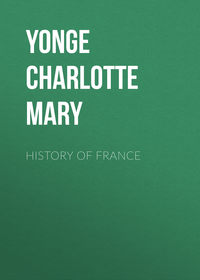
A Modern Telemachus
After everything had been dragged up to the adowara, there ensued a sort of auction or division of the plunder. Poor Maître Hébert was doomed to see the boxes and bales he had so diligently watched broken open by these barbarians,—nay, he had to assist in their own dissection when the secrets were too much for the Arabs. There was the King of Spain’s portrait rent from its costly setting and stamped upon as an idolatrous image. The miniature of the Count, worn by the poor lady, had previously shared the same fate, but that happily was out of sight and knowledge. Here was the splendid plate, presented by crowned heads, howled over by savages ignorant of its use. The silver they seemed to value; but there were three precious gold cups which the salt water had discoloured, so that they were taken for copper and sold for a very small price to a Jew, who somehow was attracted to the scene, ‘like a raven to the slaughter,’ said Lanty.
This man likewise secured some of the poor lady’s store of rich dresses, but a good many more were appropriated to make sashes for the men, and the smaller articles, including stockings, were wound turban fashion round the children’s heads.
Lanty could not help observing, ‘And if the saints are merciful to us, and get us out of this, we shall have stories to tell that will last our lives!’ as he watched the solemn old chief smelling to the perfumes, swallowing the rouge as splendid medicine, and finally fingering a snuff-box, while half a dozen more crowded round to assist in the opening, and in another moment sneezing, weeping, tingling, dancing frantically about, vituperating the Christian’s magic.
This gave Lanty an idea. A little round box lay near, which, as he remembered, contained a Jack-in-the-box, or Polichinelle, which the poor little Chevalier had bought at the fair at Tarascon. This he contrived to secrete and hand to Victorine. ‘Keep the secret,’ he said, ‘and you will find your best guardian in that bit of a box.’ And when that very evening an Arab showed some intentions of adding her to his harem, Victorine bethought herself of the box, and unhooked in desperation. Up sprang Punch, long-nosed and fur-capped, right in the bearded face.
Back the man almost fell; ‘Shaitan, Shaitan!’ was the cry, as the inhabitants tumbled pell-mell out of the hovel, and Victorine and Punch remained masters of the situation.
She heard Lanty haranguing in broken Arabic and lingua Franca, and presently he came in, shaking with suppressed laughter. ‘If ever we get home,’ said he, ‘we’ll make a pilgrimage to Tarascon! Blessings on good St. Martha that put that sweet little imp in my way! The rogues think he is the very genie that the fisherman let out of the bottle in Mademoiselle’s book of the Thousand and One Nights, and thought to see him towering over the whole place. And a fine figure he would be with his hook nose and long beard. They sent me to beg you fairly to put up your little Shaitan again. I told them that Shaitan, as they call him, is always in it when there’s meddling between an espoused pair—which is as true as though the Holy Father at Rome had said it—and as long as they were civil, Shaitan would rest; but if they durst molest you, there was no saying where he would be, if once you had to let him out! To think of the virtue of that ugly face and bit of a coil of wire!’
Meantime Hébert, having ascertained that both the Jew and Hassan were going away, the one to Constantina, the other to Algiers, wrote, and so did Estelle, to the Consul at Algiers, explaining their position and entreating to be ransomed. Though only nine years old, Estelle could write a very fair letter, and the amazement of the Arabs was unbounded that any female creature should wield a pen. Marabouts and merchants were known to read the Koran, but if one of the goats had begun to write, their wonder could hardly have been greater; and such crowds came to witness the extraordinary operation that she could scarcely breathe or see.
It seemed to establish her in their estimation as a sort of supernatural being, for she was always treated with more consideration than the rest of the captives, never deprived of the clothes she wore, and allowed to appropriate a few of the toilette necessaries that were quite incomprehensible to those around her.
She learnt the names for bread, chestnuts, dates, milk, and water, and these were never denied to her; and her little ingenuities in nursery games won the goodwill of the women and children around her, though others used to come and make ugly faces at her, and cry out at her as an unclean thing. The Abbé was allowed to wander about at will, and keep his Hours, with Estelle to make the responses, and sometimes Hébert. He was the only one that might visit the other two captives; Lanty was kept hard at work over the crop of chestnuts that the clan had come down from their mountains to gather in; and poor Victorine, who was consumed by a low fever, and almost too weak to move, lay all day in the dreary and dirty hut, expecting, but dreading death.
Some days later there was great excitement, shouting, and rage. It proved that the Bey of Constantina had sent to demand the party, threatening to send an armed force to compel their surrender; but, alas! the hope of a return to comparative civilisation was instantly quashed, for the sheyk showed himself furious. He and Eyoub stood brandishing their scimitars, and with eyes flashing like a panther’s in the dark, declaring that they were free, no subjects of the Dey nor the Bey either; and that they would shed the blood of every one of the captives rather than yield them to the dogs and sons of dogs at Constantina.
This embassy only increased the jealousy with which the prisoners were guarded. None of them were allowed to stir without a man with a halbert, and they had the greatest difficulty in entrusting a third letter to the Moor in command of the party. Indeed, it was only managed by Estelle’s coaxing of the little Abou Daoud, who was growing devoted to her, and would do anything for the reward of hearing her sing life Malbrook s’en va-t’-n guerre.
It might have been in consequence of this threat of the Bey, much as they affected to despise it, that the Cabeleyzes prepared to return to the heights of Mount Araz, whence they had only descended during the autumn to find fresh pasture for their cattle, and to collect dates and chestnuts from the forest.
‘Alas!’ said Hubert, ‘this is worse than ever. As long as we were near the sea, I had hope, but now all trace of us will be lost, even if the Consul should send after us.’
‘Never fear, Maître Hubert,’ said Estelle; ‘you know Télémaque was a prisoner and tamed the wild peasants in Egypt.’
‘Ah! the poor demoiselle, she always seems as if she were acting a comedy.’
This was happily true. Estelle seemed to be in a curious manner borne through the dangers and discomforts of her surroundings by a strange dreamy sense of living up to her part, sometimes as a possible martyr, sometimes as a figure in the mythological or Arcadian romance that had filtered into her nursery.
CHAPTER VI—A MOORISH VILLAGE
‘Our laws and our worship on thee thou shalt take,And this shalt thou first do for Zulema’s sake.’Scott.When Arthur Hope dashed back from the party on the prow of the wrecked tartane in search of little Ulysse, he succeeded in grasping the child, but at the same moment a huge breaker washed him off the slipperily-sloping deck, and after a scarce conscious struggle he found himself, still retaining his clutch of the boy, in the trough between it and another. He was happily an expert swimmer, and holding the little fellow’s clothes in his teeth, he was able to avoid the dash, and to rise on another wave. Then he perceived that he was no longer near the vessel, but had been carried out to some little distance, and his efforts only succeeded in keeping afloat, not in approaching the shore. Happily a plank drifted so near him that he was able to seize it and throw himself across it, thus obtaining some support, and being able to raise the child farther above the water.
At the same time he became convinced that a strong current, probably from a river or stream, was carrying him out to sea, away from the bay. He saw the black heads of two or three of the Moorish crew likewise floating on spars, and yielding themselves to the stream, and this made him better satisfied to follow their example. It was a sort of rest, and gave him time to recover from the first exhaustion to convince himself that the little boy was not dead, and to lash him to the plank with a handkerchief.
By and by—he knew not how soon—calls and shouts passed between the Moors; only two seemed to survive, and they no longer obeyed the direction of the current, but turned resolutely towards the land, where Arthur dimly saw a green valley opening towards the sea. This was a much severer effort, but by this time immediate self-preservation had become the only thought, and happily both wind and the very slight tide were favourable, so that, just as the sun sank beneath the western waves, Arthur felt foothold on a sloping beach of white sand, even as his powers became exhausted. He struggled up out of reach of the sea, and then sank down, exhausted and unconscious.
His first impression was of cries and shrieks round him, as he gasped and panted, then saw as in a dream forms flitting round him, and then—feeling for the child and missing him—he raised himself in consternation, and the movement was greeted by fresh unintelligible exclamations, while a not unkindly hand lifted him up. It belonged to a man in a sort of loose white garment and drawers, with a thin dark-bearded face; and Arthur, recollecting that the Spanish word niño passed current for child in lingua Franca, uttered it with an accent of despairing anxiety. He was answered with a volley of words that he only understood to be in a consoling tone, and the speaker pointed inland. Various persons, among whom Arthur saw his recent shipmates, seemed to be going in that direction, and he obeyed his guide, though scarcely able to move from exhaustion and cold, the garments he had retained clinging about him. Some one, however, ran down towards him with a vessel containing a draught of sour milk. This revived him enough to see clearly and follow his guides. After walking a distance, which appeared to him most laborious, he found himself entering a sort of village, and was ushered through a courtyard into a kind of room. In the centre a fire was burning; several figures were busy round it, and in another moment he perceived that they were rubbing, chafing, and otherwise restoring his little companion.
Indeed Ulysse had just recovered enough to be terribly frightened, and as his friend’s voice answered his screams, he sprang from the kind brown hands, and, darting on Arthur, clung to him with face hidden on his shoulder. The women who had been attending to him fell back as the white stranger entered, and almost instantly dry clothes were brought, and while Arthur was warming himself and putting them on, a little table about a foot high was set, the contents of a cauldron of a kind of soup which had been suspended over the fire were poured into a large round green crock, and in which all were expected to dip their spoons and fingers. Little Ulysse was exceedingly amazed, and observed that ces gens were not bien élevés to eat out of the dish; but he was too hungry to make any objection to being fed with the wooden spoon that had been handed to Arthur; and when the warm soup, and the meat floating in it, had refreshed them, signs were made to them to lie down on a mat within an open door, and both were worn out enough to sleep soundly.
It was daylight when Arthur was awakened by poor little Ulysse sitting up and crying out for his bonne, his mother, and sister, ‘Oh! take me to them,’ he cried; ‘I do not like this dark place.’
For dark the room was, being windowless, though the golden sunlight could be seen beyond the open doorway, which was under a sort of cloister or verandah overhung by some climbing plant. Arthur, collecting himself, reminded the child how the waves had borne them away from the rest, with earnest soothing promises of care, and endeavouring to get back to the rest. ‘Say your prayers that God will take care of you and bring you back to your sister,’ Arthur added, for he did not think it possible that the child’s mother should have been saved from the waves; and his heart throbbed at thoughts of his promise to the poor lady.
‘But I want my bonne,’ sighed Ulysse; ‘I want my clothes. This is an ugly robe de nuit, and there is no bed.’
‘Perhaps we can find your clothes,’ said Arthur. ‘They were too wet to be kept on last night.’
So they emerged into the court, which had a kind of farmyard appearance; women with rows of coins hanging over their brows were milking cows and goats, and there was a continuous confusion of sound of their voices, and the lowing and bleating of cattle. At the appearance of Arthur and the boy, there was a general shout, and people seemed to throng in to gaze at them, the men handsome, stately, and bearded, with white full drawers, and a bournouse laid so as first to form a flat hood over the head, and then belted in at the waist, with a more or less handsome sash, into which were stuck a spoon and knife, and in some cases one or two pistols. They did not seem ill-disposed, though their language was perfectly incomprehensible. Ulysse’s clothes were lying dried by the hearth and no objection was made to his resuming them. Arthur made gestures of washing or bathing, and was conducted outside the court, to a little stream of pure water descending rapidly to the sea. It was so cold that Ulysse screamed at the touch, as Arthur, with more spectators than he could have desired, did his best to perform their toilettes. He had divested himself of most of his own garments for the convenience of swimming, but his pockets were left and a comb in them; and though poor Mademoiselle Julienne would have been shocked at the result of his efforts, and the little silken laced suit was sadly tarnished with sea water, Ulysse became such an astonishing sight that the children danced round him, the women screamed with wonder, and the men said ‘Mashallah!’ The young Scotsman’s height was perhaps equally amazing, for he saw them pointing up to his head as if measuring his stature.
He saw that he was in a village of low houses, with walls of unhewn stone, enclosing yards, and set in the midst of fruit-trees and gardens. Though so far on in the autumn there was a rich luxuriant appearance; roots and fruits, corn and flax, were laid out to dry, and girls and boys were driving the cattle out to pasture. He could not doubt that he had landed among a settled and not utterly uncivilised people, but he was too spent and weary to exert himself, or even to care for much beyond present safety; and had no sooner returned to his former quarters, and shared with Ulysse a bowl of curds, than they both feel asleep again in the shade of the gourd plant trained on a trellised roof over the wall.
When he next awoke, Ulysse was very happily at play with some little brown children, as if the sports of childhood defied the curse of Babel, and a sailor from the tartane was being greeted by the master of the house. Arthur hoped that some communication would now be possible, but, unfortunately, the man knew very little of the lingua Franca of the Mediterranean, and Arthur knew still less. However, he made out that he was the only one of the shipwrecked crew who had managed to reach the land, and that this was a village of Moors—settled agricultural Moors, not Arabs, good Moslems—who would do him no harm. This, and he pointed to a fine-looking elderly man, was the sheyk of the village, Abou Ben Zegri, and if the young Giaours would conform to the true faith all would be salem with them. Arthur shook his head, and tried by word and sign to indicate his anxiety for the rest of his companions. The sailor threw up his hands, and pointed towards the sea, to show that he believed them to be all lost; but Arthur insisted that five—marking them off on his fingers—were on gebal, a rock, and emphatically indicated his desire of reaching them. The Moor returned the word ‘Cabeleyzes,’ with gestures signifying throat-cutting and slavery, also that these present hosts regarded them as banditti. How far off they were it was not possible to make out, for of course Arthur’s own sensations were no guide; but he knew that the wreck had taken place early in the afternoon, and that he had come on shore in the dusk, which was then at about five o’clock. There was certainly a promontory, made by the ridge of a hill, and also a river between him and any survivors there might be.
This was all that he could gather, and he was not sure of even thus much, but he was still too much wearied and battered for any exertion of thought or even anxiety. Three days’ tempest in a cockle-shell of a ship, and then three hours’ tossing on a plank, had left him little but the desire of repose, and the Moors were merciful and let him alone. It was a beautiful place—that he already knew. A Scot, and used to the sea-coast, his eye felt at home as it ranged to the grand heights in the dim distance, with winter caps of snow, and shaded in the most gorgeous tints of colouring forests beneath, slopes covered with the exquisite green of young wheat. Autumn though it was, the orange-trees, laden with fruit, the cork-trees, ilexes, and fan-palms, gave plenty of greenery, shading the gardens with prickly pear hedges; and though many of the fruit-trees had lost their leaves, fig, peach, and olive, and mulberry, caper plants, vines with foliage of every tint of red and purple, which were trained over the trellised courts of the houses, made everything have a look of rural plenty and peace, most unlike all that Arthur had ever heard or imagined of the Moors, who, as he owned to himself, were certainly not all savage pirates and slave-drivers. The whole within was surrounded by a stone wall, with a deep horse-shoe-arched gateway, the fields and pastures lying beyond with some more slightly-walled enclosures meant for the protection of the flocks and herds at night.
He saw various arts going on. One man was working in iron over a little charcoal fire, with a boy to blow up his bellows, and several more were busied over some pottery, while the women alternated their grinding between two mill stones, and other domestic cares, with spinning, weaving, and beautiful embroidery. To Arthur, who looked on, with no one to speak to except little Ulysse, it was strangely like seeing the life of the Israelites in the Old Testament when they dwelt under their own vines and fig-trees—like reading a chapter in the Bible, as he said to himself, as again and again he saw some allusion to Eastern customs illustrated. He was still more struck—when, after the various herds of kine, sheep, and goats, with one camel, several asses, and a few slender-limbed Barbary horses had been driven in for the night—by the sight of the population, as the sun sank behind the mountains, all suspending whatever they were about, spreading their prayer carpets, turning eastwards, performing their ablutions, and uttering their brief prayer with one voice so devoutly that he was almost struck with awe.
‘Are they saying their prayers?’ whispered Ulysse, startled by the instant change in his play-fellows, and as Arthur acquiesced, ‘Then they are good.’
‘If it were the true faith,’ said Arthur, thinking of the wide difference between this little fellow and Estelle; but though not two years younger, Ulysse was far more childish than his sister, and when she was no longer present to lead him with her enthusiasm, sank at once to his own level. He opened wide his eyes at Arthur’s reply, and said, ‘I do not see their idols.’
‘They have none,’ said Arthur, who could not help thinking that Ulysse might look nearer home for idols—but chiefly concerned at the moment to keep the child quiet, lest he should bring danger on them by interruption.
They were sitting in the embowered porch of the sheyk’s court when, a few seconds after the villagers had risen up from their prayer, they saw a figure enter at the village gateway, and the sheyk rise and go forward. There were low bending in salutation, hands placed on the breast, then kisses exchanged, after which the Sheyk Abou Ben Zegri went out with the stranger, and great excitement and pleasure seemed to prevail among the villagers, especially the women. Arthur heard the word ‘Yusuf’ often repeated, and by the time darkness had fallen on the village, the sheyk ushered the guest into his court, bringing with him a donkey with some especially precious load—which was removed; after which the supper was served as before in the large low apartment, with a handsomely tiled floor, and an opening in the roof for the issue of the smoke from the fire, which became agreeable in the evening at this season. Before supper, however, the stranger’s feet and hands were washed by a black slave in Eastern fashion; and then all, as before, sat on mats or cushions round the central bowl, each being furnished with a spoon and thin flat soft piece of bread to dip into the mess of stewed kid, flakes of which might be extracted with the fingers.
The women, who had fastened a piece of linen across their faces, ran about and waited on the guests, who included three or four of the principal men of the village, as well as the stranger, who, as Arthur observed, was not of the uniform brown of the rest, but had some colour in his cheeks, light eyes, and a ruddy beard, and also was of a larger frame than these Moors, who, though graceful, lithe, and exceedingly stately and dignified, hardly reached above young Hope’s own shoulder. Conversation was going on all the time, and Arthur soon perceived that he was the subject of it. As soon as the meal was over, the new-comer addressed him, to his great joy, in French. It was the worst French imaginable—perhaps more correctly lingua Franca, with a French instead of an Arabic foundation, but it was more comprehensible than that of the Moorish sailor, and bore some relation to a civilised language; besides which there was something indescribably familiar in the tone of voice, although Arthur’s good French often missed of being comprehended.
‘Son of a great man? Ambassador, French!’ The greatness seemed impressed, but whether ambassador was understood was another thing, though it was accepted as relating to the boy.
‘Secretary to the Ambassador’ seemed to be an equal problem. The man shook his head, but he took in better the story of the wreck, though, like the sailor, he shook his head over the chance of there being any survivors, and utterly negatived the idea of joining them. The great point that Arthur tried to convey was that there would be a very considerable ransom if the child could be conveyed to Algiers, and he endeavoured to persuade the stranger, who was evidently a sort of travelling merchant, and, as he began to suspect, a renegade, to convey them thither; but he only got shakes of the head as answers, and something to the effect that they were a good deal out of the Dey’s reach in those parts, together with what he feared was an intimation that they were altogether in the power of Sheyk Abou Ben Zegri.
They were interrupted by a servant of the merchant, who came to bring him some message as well as a pipe and tobacco. The pipe was carried by a negro boy, at sight of whom Ulysse gave a cry of ecstasy, ‘Juba! Juba! Grandmother’s Juba! Why do not you speak to me?’ as the little black, no bigger than Ulysse himself, grinned with all his white teeth, quite uncomprehending.
‘Ah! my poor laddie,’ exclaimed Arthur in his native tongue, which he often used with the boy, ‘it is only another negro. You are far enough from home.’
The words had an astonishing effect on the merchant. He turned round with the exclamation, ‘Ye’ll be frae Scotland!’
‘And so are you!’ cried Arthur, holding out his hand.
‘Tak tent, tak tent,’ said the merchant hastily, yet with a certain hesitation, as though speaking a long unfamiliar tongue. ‘The loons might jalouse our being overfriendly thegither.’
Then he returned to the sheyk, to whom he seemed to be making explanations, and presenting some of his tobacco, which probably was of a superior quality in preparation to what was grown in the village. They solemnly smoked together and conversed, while Arthur watched them anxiously, relieved that he had found an interpreter, but very doubtful whether a renegade could be a friend, even though he were indeed a fellow-countryman.









